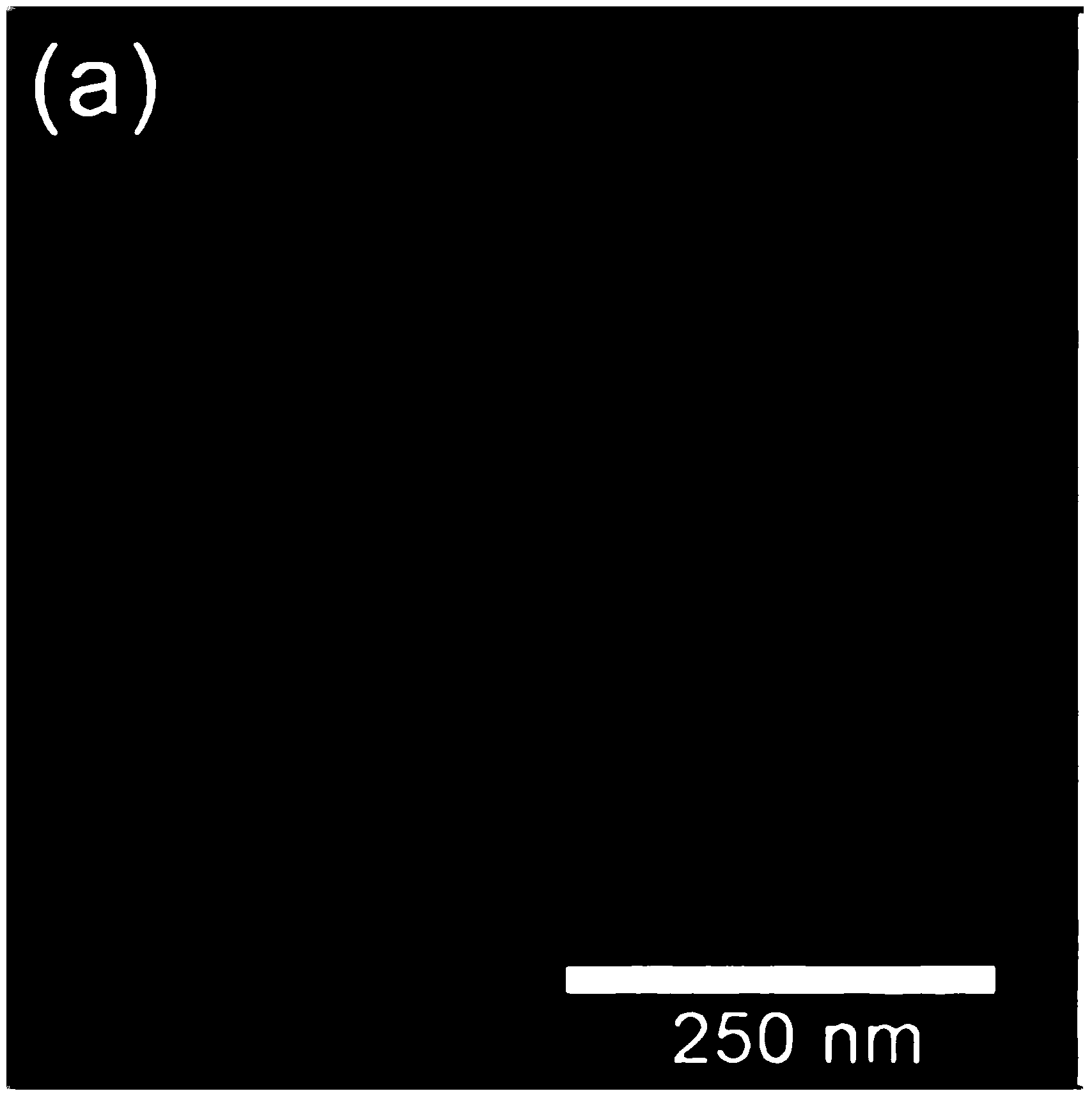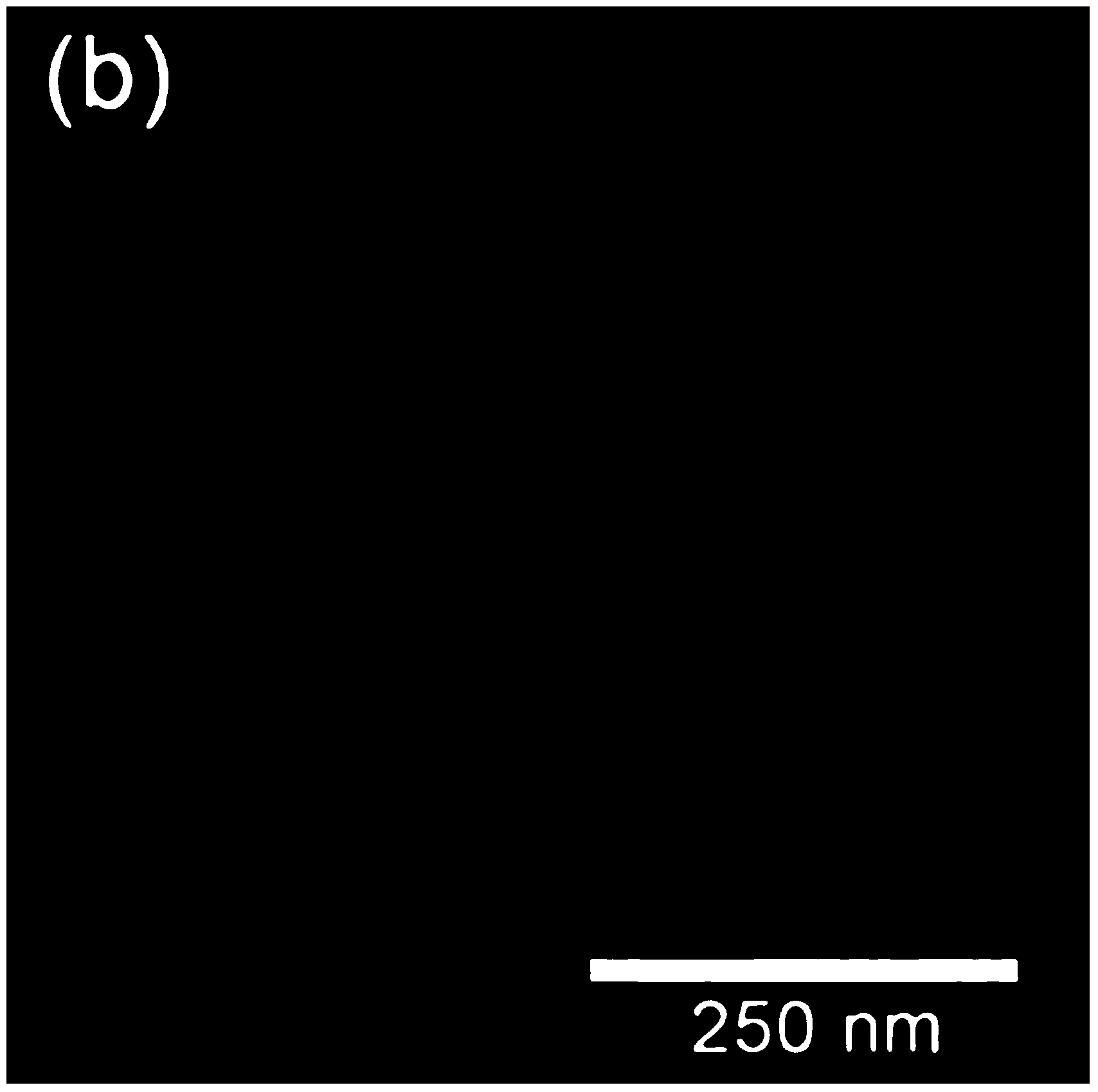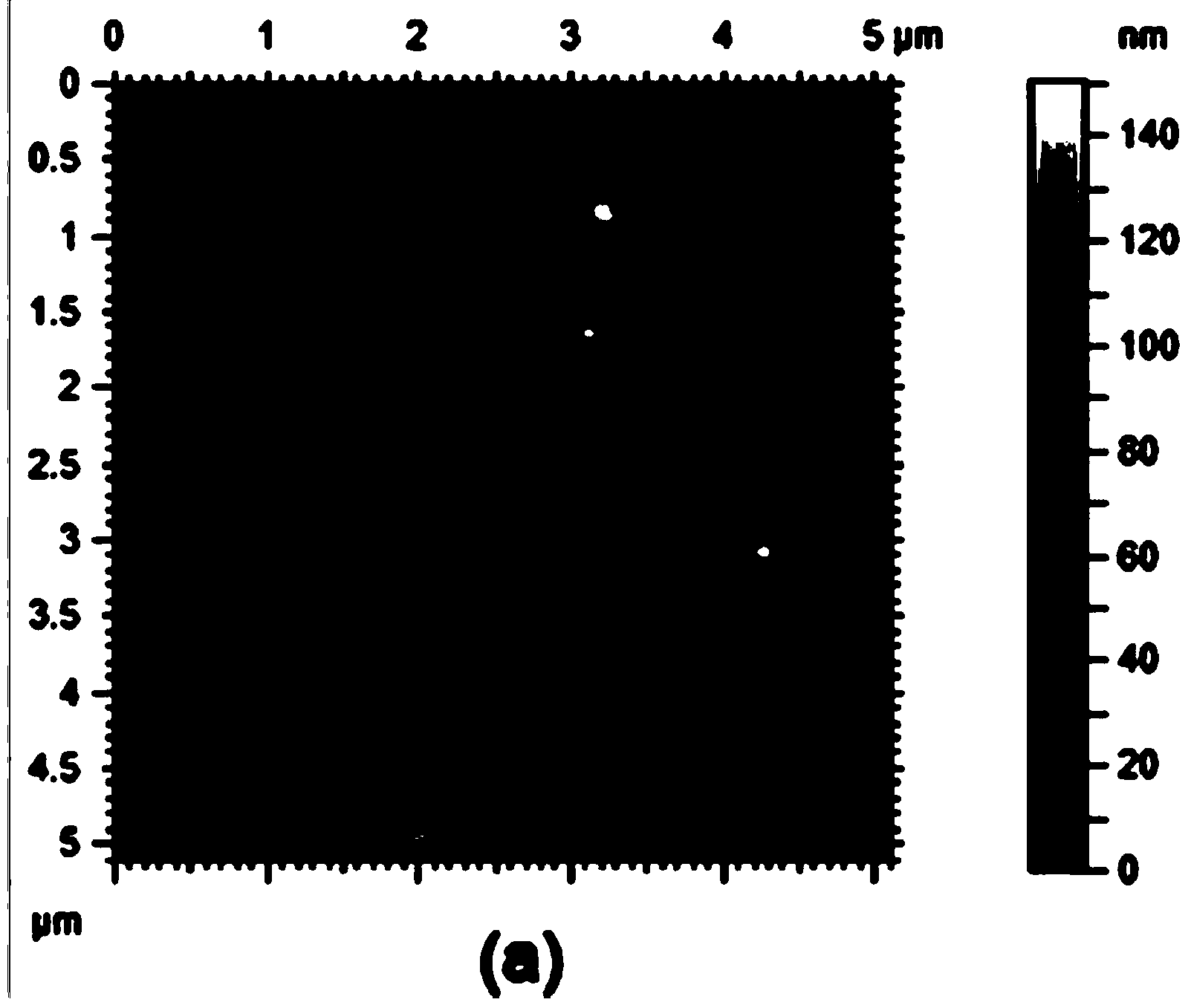Polyacid-based pure inorganic multi-color electrochromic film
An electrochromic and inorganic technology, applied in the field of pure inorganic multi-color electrochromic film, can solve the problems of long-term stability limited by the stability of organic components, single component, single color change, etc., to achieve good multi-color color change performance, production Low cost and responsive effect
- Summary
- Abstract
- Description
- Claims
- Application Information
AI Technical Summary
Problems solved by technology
Method used
Image
Examples
Embodiment 1
[0030] Example 1 Preparation of a pure inorganic multi-color electrochromic film based on polyacid
[0031] The specific steps are:
[0032] 1) Dissolve potassium trivanadium pentatungstate in water to prepare 0.015mol / L aqueous solution A, and adjust the pH of the solution to 2 with hydrochloric acid.
[0033] 2) Commercial P25 powder TiO2 was formulated into paste B which can be used for screen printing.
[0034] 3) Conductive glass FTO is screen-printed with paste B, so that a 5 micron thick TiO2 thin layer is printed on its surface.
[0035] 4) Place the conductive glass FTO printed with a TiO2 thin layer in aqueous solution A for electrodeposition, use the conductive glass FTO printed with a TiO2 thin layer as a working electrode, a saturated calomel electrode as a reference electrode, and a Pt sheet as a counter electrode, Electrodeposition was performed by cyclic voltammetry, the voltage range was set at 0.5V-1.0V, the scan rate was 75mV / s, and the number of cycles wa...
Embodiment 2
[0042] Example 2 Preparation of a pure inorganic multi-color electrochromic film based on polyacid
[0043]The preparation method is the same as that in Example 1, except that the number of cycles is changed 20 times to obtain a pure inorganic multi-color electrochromic film based on polyacid.
[0044] Such as figure 2 Shown, the SEM characterization figure of the pure inorganic multi-color electrochromic film based on polyacid prepared in embodiment 2, by figure 2 It can be seen that the particle size of TiO2 particles coated with polyacid in the film is about 20nm, and the coating of polyacid on TiO2 particles is uniform without aggregation. Such as Figure 4 Shown embodiment 2 prepares the AFM figure based on the pure inorganic multi-color electrochromic film of polyacid, by Figure 4 It can be seen that the surface of the film is smooth and the roughness is small, which is extremely beneficial to the permeability of the faded state.
[0045] The pure inorganic multi-...
PUM
| Property | Measurement | Unit |
|---|---|---|
| Particle size | aaaaa | aaaaa |
Abstract
Description
Claims
Application Information
 Login to View More
Login to View More - R&D
- Intellectual Property
- Life Sciences
- Materials
- Tech Scout
- Unparalleled Data Quality
- Higher Quality Content
- 60% Fewer Hallucinations
Browse by: Latest US Patents, China's latest patents, Technical Efficacy Thesaurus, Application Domain, Technology Topic, Popular Technical Reports.
© 2025 PatSnap. All rights reserved.Legal|Privacy policy|Modern Slavery Act Transparency Statement|Sitemap|About US| Contact US: help@patsnap.com



